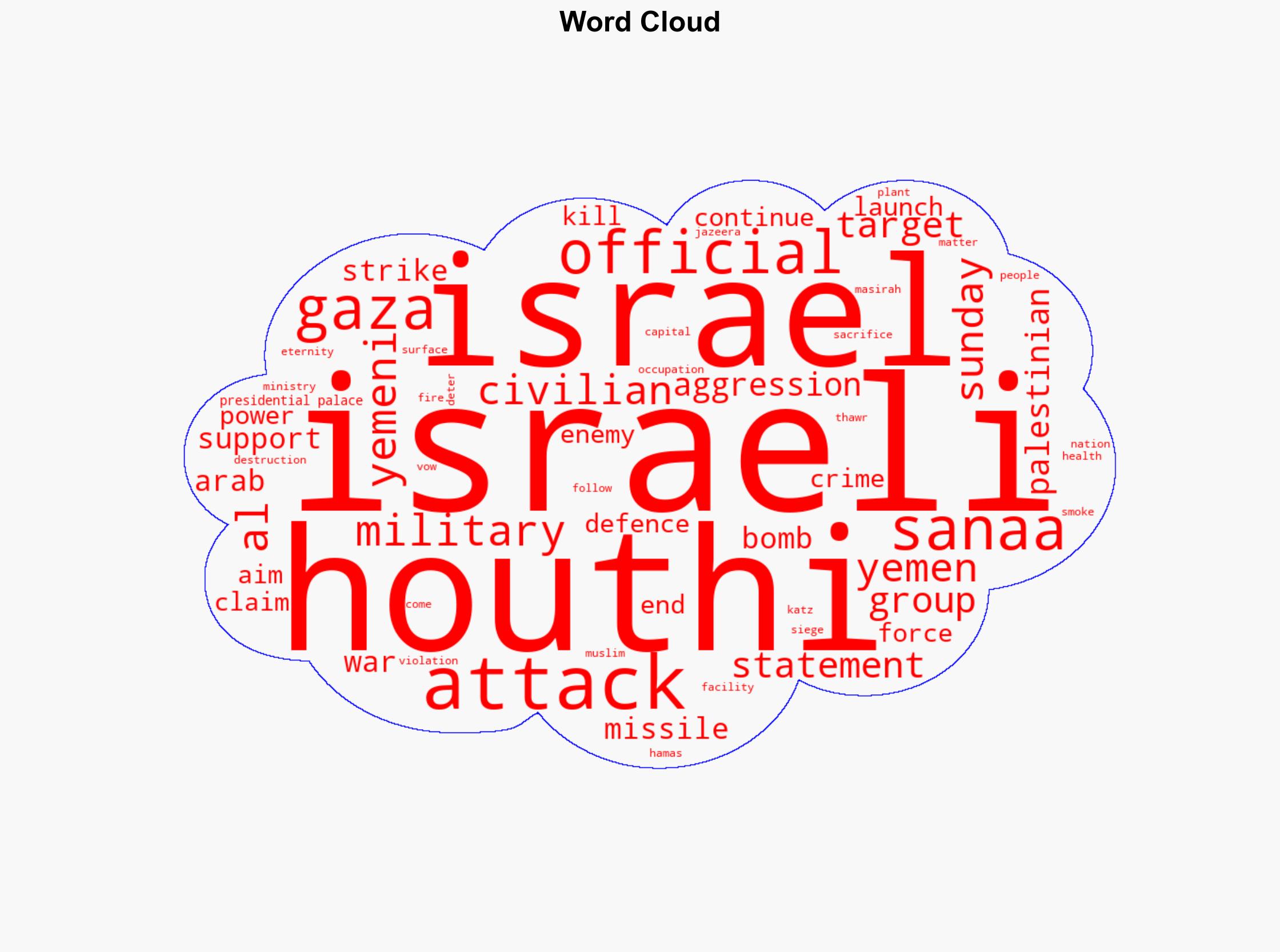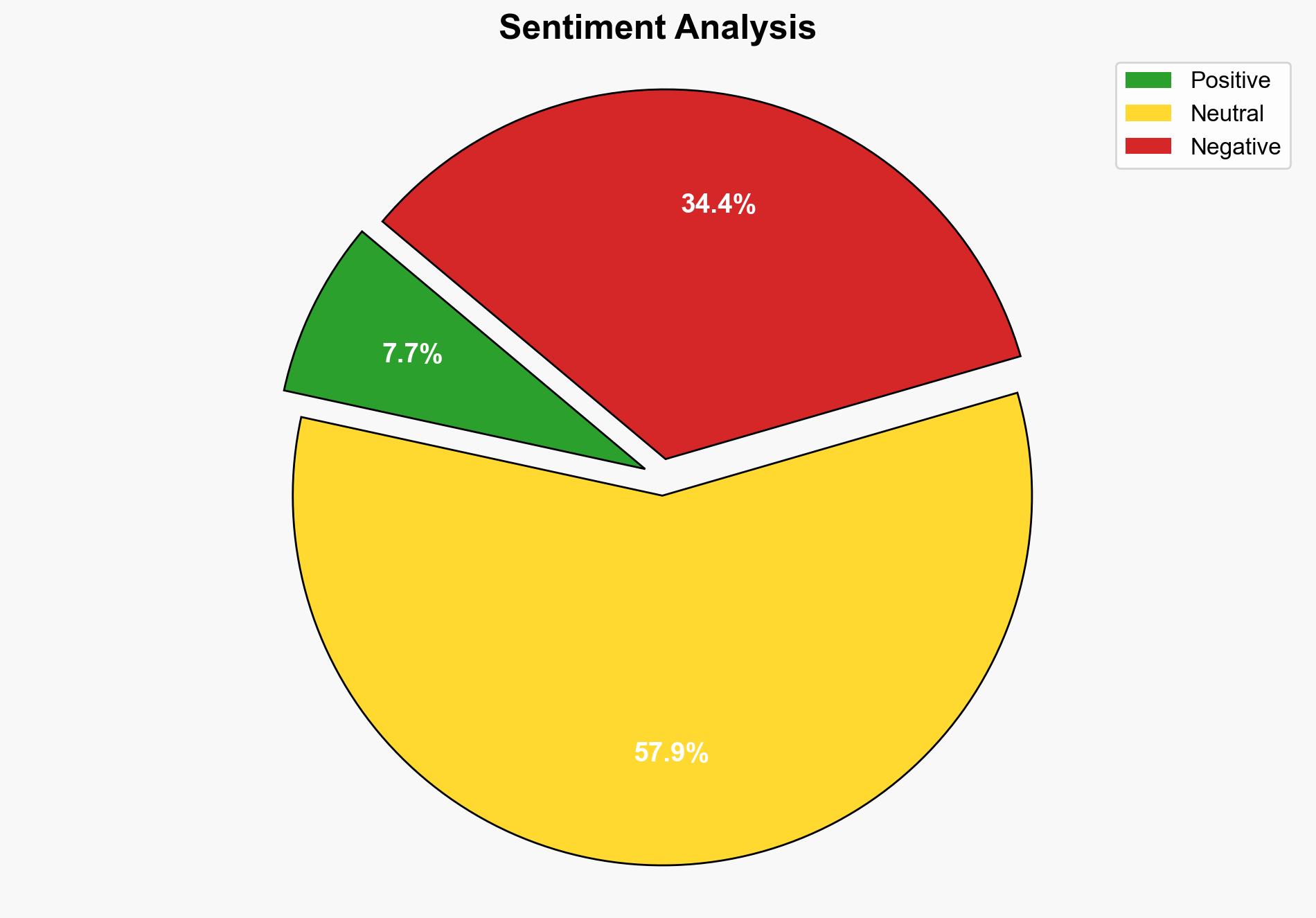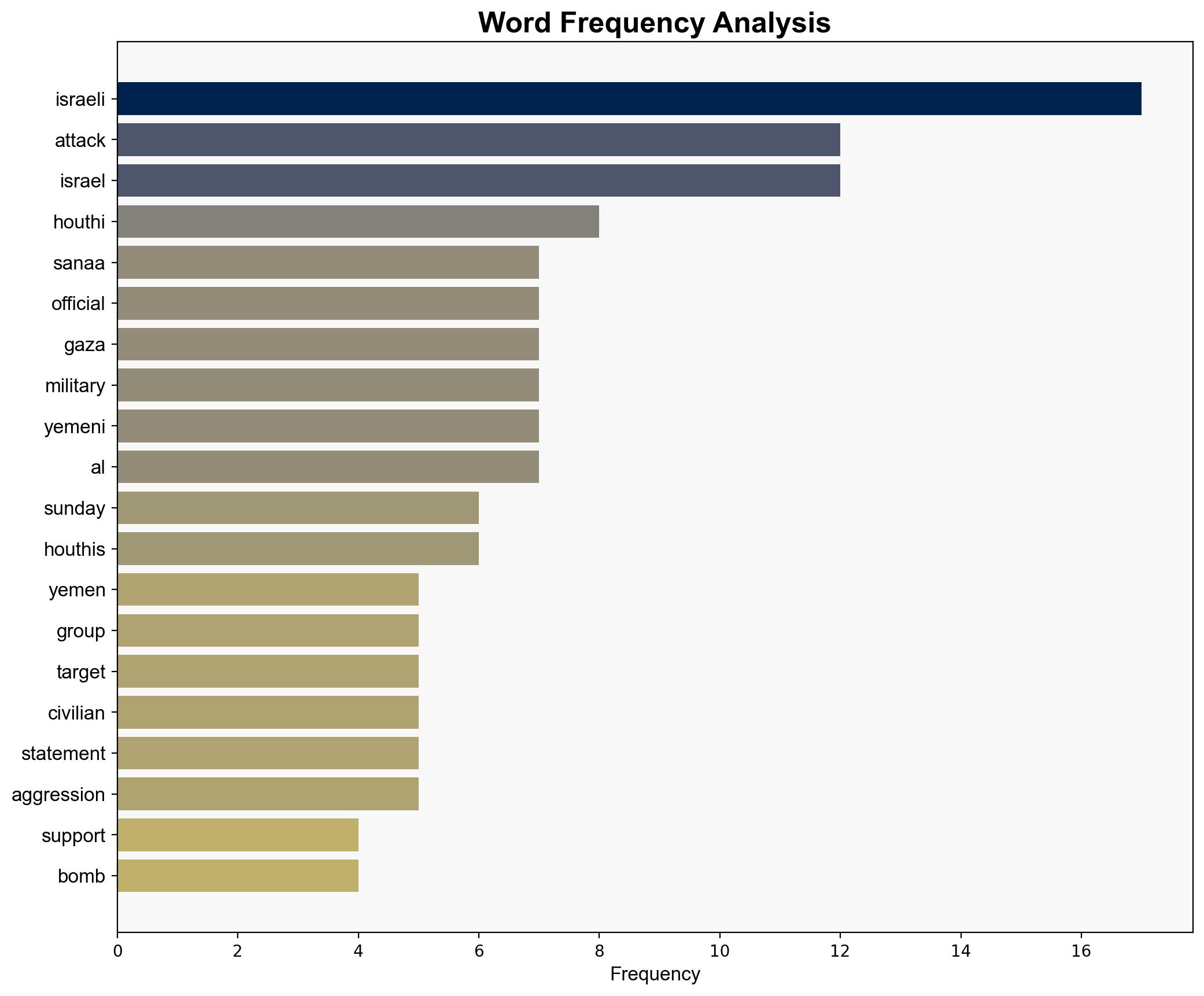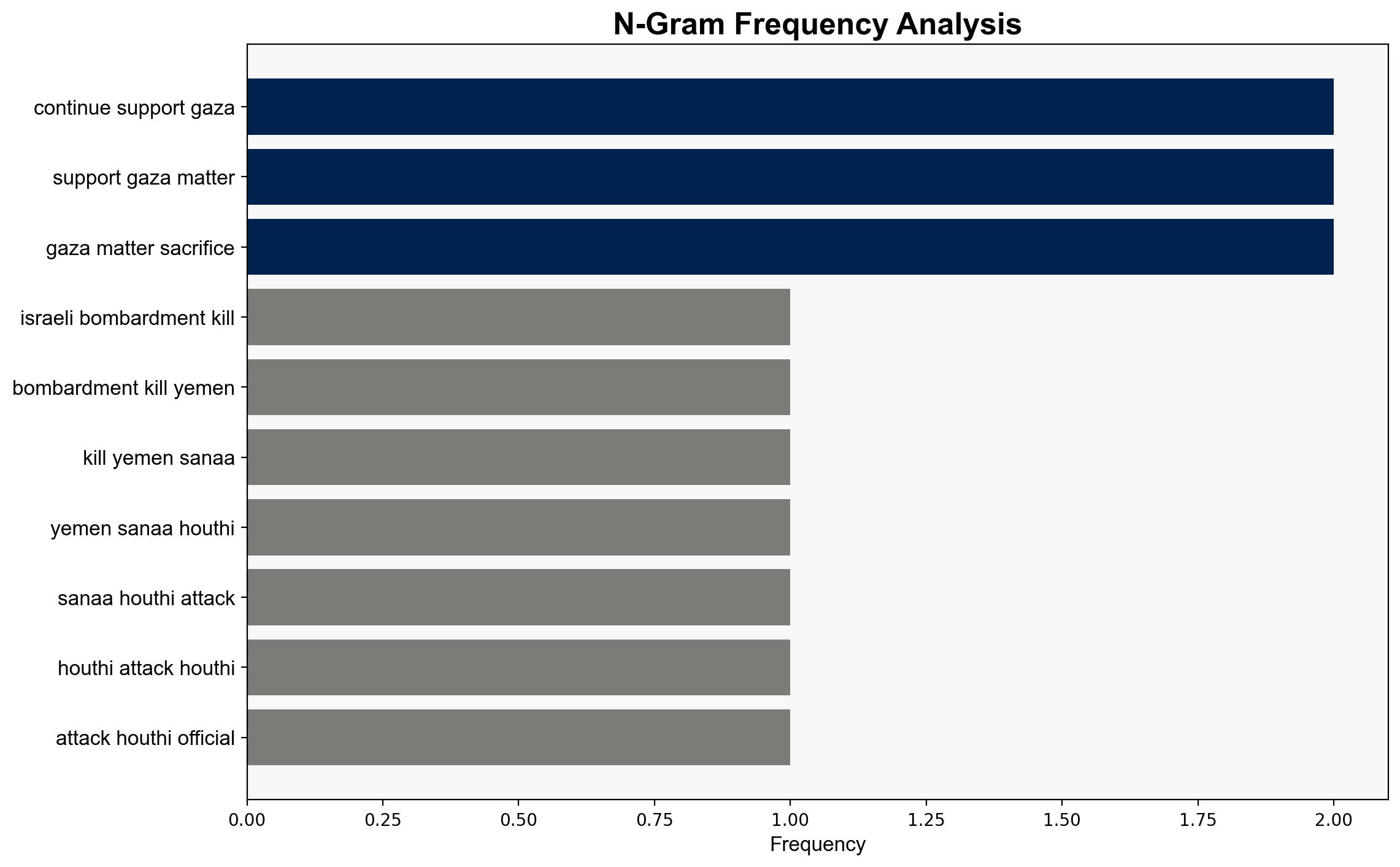Israeli military targets Yemens Sanaa after Houthi attacks – Al Jazeera English
Published on: 2025-08-24
Intelligence Report: Israeli military targets Yemens Sanaa after Houthi attacks – Al Jazeera English
1. BLUF (Bottom Line Up Front)
The most supported hypothesis is that Israel’s military actions in Yemen are a strategic response to Houthi missile attacks and broader regional tensions, with a medium confidence level. The recommended action is to enhance diplomatic efforts to de-escalate tensions and monitor potential retaliatory actions by Houthi forces or their allies.
2. Competing Hypotheses
1. **Hypothesis A**: Israel’s military strikes in Sanaa are a direct response to Houthi missile attacks targeting Israeli interests, aimed at deterring further aggression and demonstrating military capability.
2. **Hypothesis B**: The strikes are part of a broader Israeli strategy to pressure Houthi forces and their allies to cease support for Palestinian groups, particularly in the context of the ongoing conflict in Gaza.
Using the Analysis of Competing Hypotheses (ACH) 2.0, Hypothesis A is better supported by the evidence of direct military engagement following Houthi attacks and statements from Israeli officials emphasizing retaliation. Hypothesis B is plausible but less directly supported by the timing and nature of the strikes.
3. Key Assumptions and Red Flags
– **Assumptions**: It is assumed that Israeli military actions are primarily reactive rather than preemptive. Another assumption is that Houthi support for Gaza is a significant factor in Israeli decision-making.
– **Red Flags**: The potential for misinformation or propaganda from both sides, especially concerning civilian casualties and the nature of targeted sites, should be considered. The lack of independent verification of claims from both Israeli and Houthi sources is a critical blind spot.
4. Implications and Strategic Risks
The escalation could lead to broader regional instability, with potential retaliatory strikes by Houthi forces against Israeli or allied interests. There is a risk of drawing in additional regional actors, increasing the complexity of the conflict. Economically, disruptions to oil facilities in Yemen could impact global markets. Geopolitically, increased tensions may strain international diplomatic efforts in the Middle East.
5. Recommendations and Outlook
- Enhance intelligence-sharing with regional allies to monitor Houthi capabilities and intentions.
- Engage in diplomatic channels to de-escalate tensions, potentially involving neutral mediators.
- Scenario Projections:
- **Best Case**: Successful diplomatic intervention leads to a ceasefire and reduced hostilities.
- **Worst Case**: Escalation leads to a broader regional conflict involving multiple state and non-state actors.
- **Most Likely**: Continued tit-for-tat strikes with periodic escalations, maintaining a high level of regional tension.
6. Key Individuals and Entities
– Mohammed al-Bukhaiti (Houthi official)
– Israel Katz (Israeli Defense Minister)
– Abe al-Thawr (Houthi Defense Ministry official)
7. Thematic Tags
national security threats, regional conflict, military strategy, Middle East tensions





